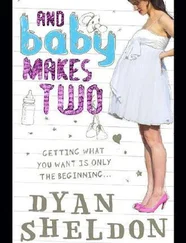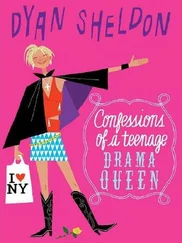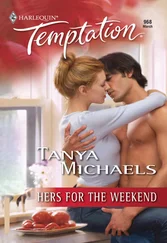One to which Gabriela rises with a smile of her own. “I do.” And that much, of course, is true. She knows little about novels, and equally little about literary criticism. But Professor Gryck’s expression is so insincere that it makes Gabriela wonder why she’s baiting Beth this way – like a matador waving his cape at the unsuspecting bull. Especially after the arguments the two of them have had today; you’d think she’d be grateful Beth finally shut up. And it is because of that that she forgets she’s meant to do nothing and say less. “I do have one question.” Gabriela pushes the dessert menu aside. It seems that in some small corner of the closet that is her brain (possibly on a high shelf, right at the back), part of Gabriela has actually been paying attention, and this is the part that speaks now. “I was just kind of wondering why all the writers you’ve been talking about are men. Every one of them.”
Professor Gryck’s smile hovers on her lips as if looking for a safe place to land.
“Excuse me, Ms Beeby?”
“I mean, women write literature too, right? It’s not like it’s a college fraternity or anything like that. They’re allowed to join.”
Everyone else stops talking, drinking, chewing and even swallowing. It’s possible that one or two of the contestants are holding their breath. Someone clears his throat.
That someone is Mr Solman, who looks as if he is either about to laugh or cough. “Well, of course they are,” he says, with the positive joviality you’d expect from a representative of a powerful corporation. “There’s nothing excluding women from the great community of the written word. Not nowadays. And they do.” Because Gabriela is staring at him with a face less blank than stony, Mr Solman’s words are slowing down and his eyes keep darting to Professor Gryck. “Write. Literature. Very good literature.”
“Then how come all the writers who’ve been mentioned are men?” Gabriela asks again.
Professor Gryck comes to Mr Solman’s rescue. “There are many major writers who are women, as you well know, Ms Beeby,” she says, her voice as stiff as starched cotton. “Jane Austen… Virginia Woolf… George Eli—”
“Then why aren’t any of them up for Great American Novelist?” insists Gabriela.
Professor Gryck glances at the others, allowing herself a small but humourless laugh. “Well, for openers, they’re all British.”
Gabriela rolls her eyes in an exasperated, annoyed-by-a-snag way. “You know what I mean. I haven’t heard anyone mention one woman. Not even quickly. Not even because some famous male writer liked her stuff.”
Professor Gryck folds her hands, leaning forward slightly. “Perhaps you’d like to mention some then, Ms Beeby.”
Behind the writers’ group, a young woman sits by herself at a table for two, finishing her meal and flicking through the book on Babylonia that Professor Gryck bought in one of the museums they visited (and which she thinks she left on the bus). Remedios has been as unsuccessful as Gabriela at completely ignoring the conversation at the contestants’ table, and so has found herself almost sedated by it. But now she looks up with amused curiosity. Is it possible that things are finally going to get interesting?
Much to Gabriela’s surprise, there seems to be even more information on that high shelf at the back of her closet, put there unbeknownst to her by Mr Sturgess and suddenly, if inexplicably, discovered by Gabriela, for into the silence that has engulfed them like a giant plastic bag she suddenly hears herself say, “Maya Angelou… Edith Wharton… Alice Walker… Harper Lee… Kate Chopin… Toni Morrison… Anne Ty—”
“No one would argue that those novelists haven’t produced some very fine work,” Professor Gryck interrupts her, “but I don’t know that any of it can be considered truly great.”
“Why not?” asks someone nearby – but not so near that Professor Gryck can tell who it is. “What criteria are you using to measure greatness?”
Professor Gryck sits up a little straighter as her smile becomes noticeably thinner. “I’m afraid the simple fact is that, on the whole, women tend to write more domestically and personally – about relationships and that kind of thing – while men deal with the larger, more profound issues.”
“Like what?” This time there is no doubt who spoke.
“Like everything, Ms Beeby. War… philosophical and existential questions of existence… power… meaning… government….”
“And those things don’t involve relationships?”
The only ones smiling are Delila and Remedios.
“Well, yes, of course they do. What I meant was that women are more concerned with the emotions … with love stor—”
Gabriela nods. “You mean like ‘Romeo and Juliet’? ‘ Anna Kare— ’”
“Good Lord, will you look at the time?” Professor Gryck waves a hand at the waiter. “I’m afraid we can’t have dessert after all. We’d better get going or we’ll be late for the play.”
As far as Gabriela is concerned, the good thing about the theatre is that it’s dark and no one is going to ask her to say anything. She can just sit there, invisible and mute, and in a couple of hours they’ll be on their way back to the hotel and she can go to bed and forget this day ever happened – at least until the morning. As soon as the lights dim, she starts to relax. Gabriela has only been to a real theatre once before, and that was to see the musical so mocked by Jayne at breakfast. This play is not a musical. It is also long and convoluted, making it difficult for Gabriela to tell who is who and what is what. The actors are dressed in modern clothes, but they don’t speak like real people speak – or even like the unreal people in movies speak. Nor do they have microphones, so that you have to listen really closely to hear what’s being said. But even when Gabriela hears what’s being said she isn’t always sure what’s going on. There are at least two characters who, as far as she can tell, never actually make an appearance.
Gabriela falls asleep.
As soon as they emerge from the theatre, Professor Gryck makes it clear that her limited supply of patience and forgiveness has officially run out. “You’ve been trying to make me look a fool all day. Are you purposely trying to undermine me? Is that what you’re doing?” she demands. “I’m an academic so I’m used to backstabbing and treachery, but not from my students!” She might possibly understand that someone who has spent the day trying to get arrested might be so tired from her efforts that she falls asleep in one of the greatest plays ever written, but did Gabriela have to snore in the middle of one of the most beautiful and moving speeches in the English language, as well? “You could have heard a pin drop!” Professor Gryck keeps saying. “A pin drop! But what did we hear? We heard you snuffling like a pig after truffles!”
The other phrase she keeps repeating is “insult to injury”.
And indeed, even as they finally enter the hotel, Professor Gryck is saying, “As if that wasn’t enough, you had to add insult to injury!”
“I said I was sorry,” says Gabriela, who has – and who very much is sorry. “It’s not like—”
Gabriela was about to say (also not for the first time) that it wasn’t as if she’d deliberately snored during a tense moment on stage. The reason she doesn’t finish this sentence is because it is right then that she notices a tall, skinny scarecrow of a woman in pink pedal pushers, pink baseball cap and a shirt that identifies her as a member of a bowling team in Long Beach, running towards them, shrieking, “There you are! At last! Oh, praise the Lord you’re alive! I was beside my wits!”
Читать дальше












